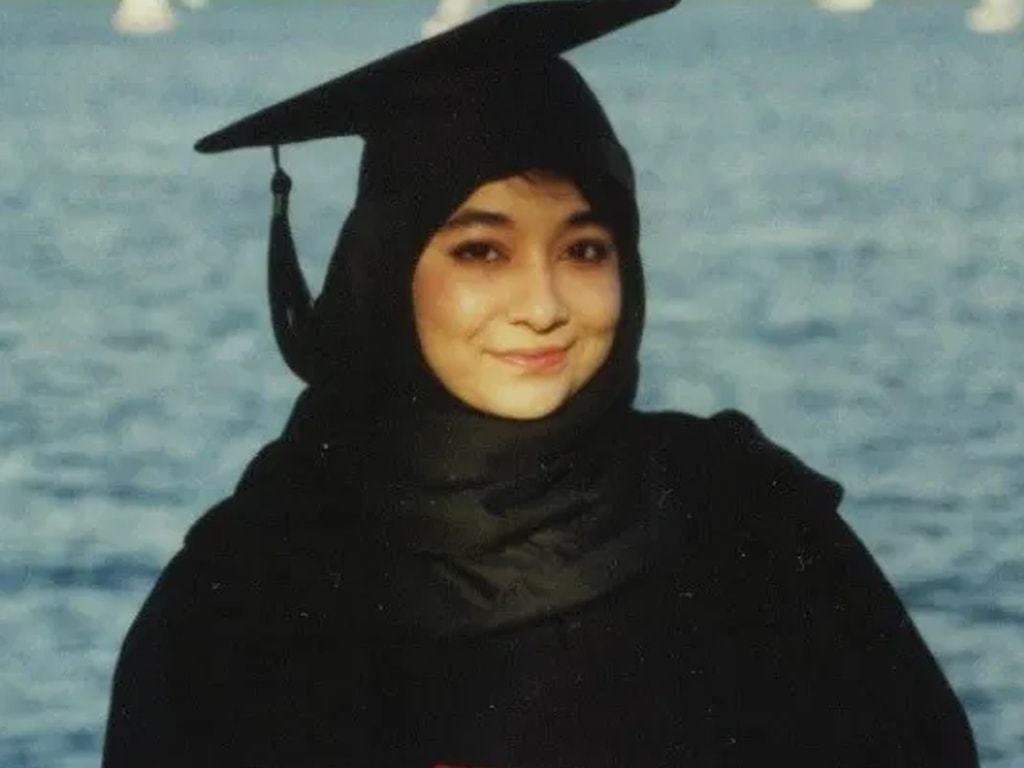Aafia Siddiqui assaulted in US prison
4 min readA fellow inmate attacked Dr Aafia Siddiqui in her cell on July 30 and she suffered severe injuries according to a British human rights organization CAGE.
Siddiqui is a US citizen of Pakistani origin who is serving 86-year sentence on terrorism charges.
“[The prison inmate] smashed a coffee mug filled with scalding hot liquid into her face,” read the press release issued by the CAGE, an independent organization in the UK, adding it received the “disturbing reports” on July 30 by her lawyer, Marwa Elbially.
The attack left her with multiple injuries: an approximately three inch scar near her left eye, a wound on her right cheek covered in toothpaste and a small piece of paper and bruises on her right arm and legs, according to the report, quoted by her lawyer.
Briefing the details of the incident, CAGE stated that Siddiqui was being harassed for some time in her cell.
The Pakistani neuroscientist curled into a fetal position to protect herself as she was attacked. Instantly, she was taken out of the cell in a wheel chair as she was unable to get up after the assault. Later, she was placed in a solitary confinement for an unspecified period of time.
Quoting Siddiqui, CAGE stated: “The fact that I’m not blind is a miracle from Allah.”
Elbially was shocked to see visible burns around Siddiqui’s eyes.
According to the press release, she called for public support after “suffering a serious violent assault”.
It further said Elbially has been meeting in person with Siddiqui since January 2021 after several years of silence from her and the US authorities, during which the public and her family questioned whether she was still alive.
Council on American-Islamic Relations (CAIR-DFW), a Muslim civil rights and advocacy organization, called for ensuring Siddiqui's safety.
In a press release issued on Thursday, CAIR-DFW called on the prison authorities where she was incarcerated to ensure her safety. It further demanded that Siddiqui’s attorney can continue to regularly meet with her client.
In a video statement, her sister Fouzia Siddiqui urged the government to immediately take notice of the attack on the neuroscientist whose life was in danger and speeding up efforts to bring her back to the country.
Who is Dr Aafia Siddiqui
Siddiqui is a graduate of MIT in cognitive neuroscience and she belonged to a middle-class family who has strong faith in Islam and education, according to a report of The Guardian.
The report further said during her stay in the United States she campaigned for Afghanistan, Bosnia and Chechnya, especially against the killing of pregnant women. It read: “She wrote emails, held fundraisers and made forceful speeches at local mosque during the stay.”
The controversy against the Pakistani neuroscientist surfaced after 9/11 when the FBI questioned her and her husband, Amjad Khan, a young Karachi doctor, in May 2002 about an unusual purchase of $10,000.
She returned back to the US in 2002 after the couple divorced and stayed there for 10 days. Later she married Ammar al-Baluchi, a nephew of the 9/11 mastermind, Khalid Sheikh Mohammed, in Karachi.
Siddiqui vanished in 2003 after FBI issued a global alert for her and Khan. According to The Guardian, the reports confirmed that she was picked by the Pakistani intelligence agency at the “behest of the CIA”. Meanwhile, Khan was interviewed by the Pakistani FBI and released him.
Later American media reports confirmed that her name was given by Mohammad, the 9/11 instigator, under duress. According to the US government, Siddiqui was at large, plotting mayhem on behalf of Osama bin Laden.
In May 2004 the then US attorney general, listed her among the seven "most wanted" al-Qaida fugitives.
He described Siddiqui as a terrorist "facilitator" who was willing to use her education against America, read the report. However, the neuroscientist’s family narrates a different story, saying Siddiqui spent the missing five years at Bagram detention centre in Kabul, where she suffered “unspeakable horrors”.
In 2008, a New York federal district court indicted Siddiqui on charges of attempted murder and assault, during an investigation with the US authorities in Ghazni, a city of Afghanistan. However she denied the charges.
For the latest news, follow us on Twitter @Aaj_Urdu. We are also on Facebook, Instagram and YouTube.






















Comments are closed on this story.